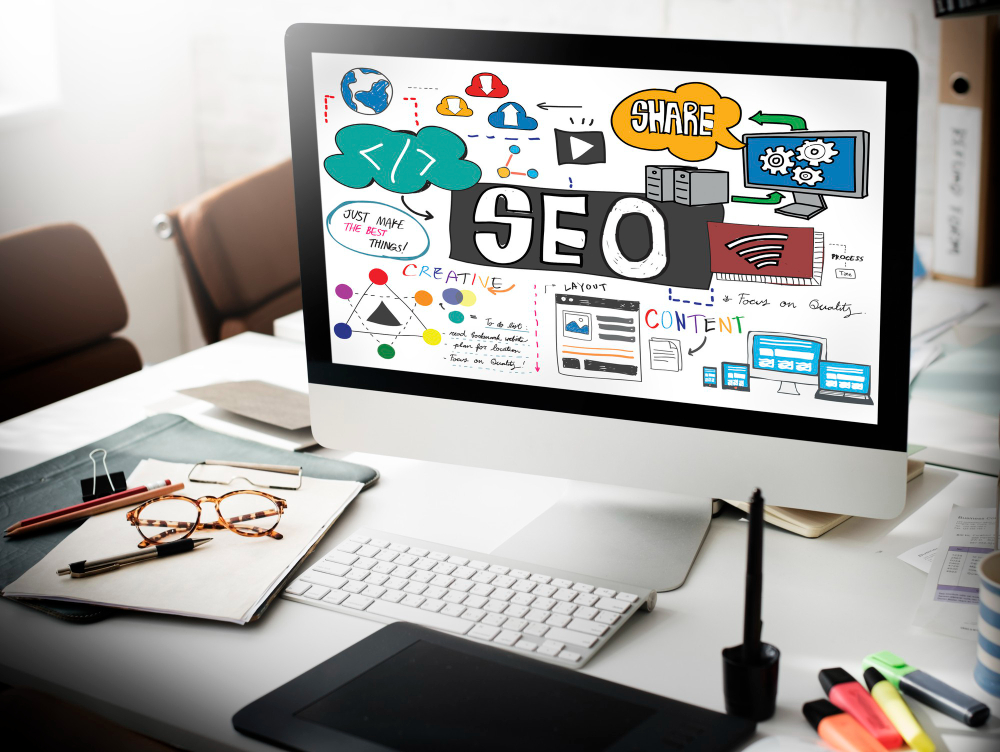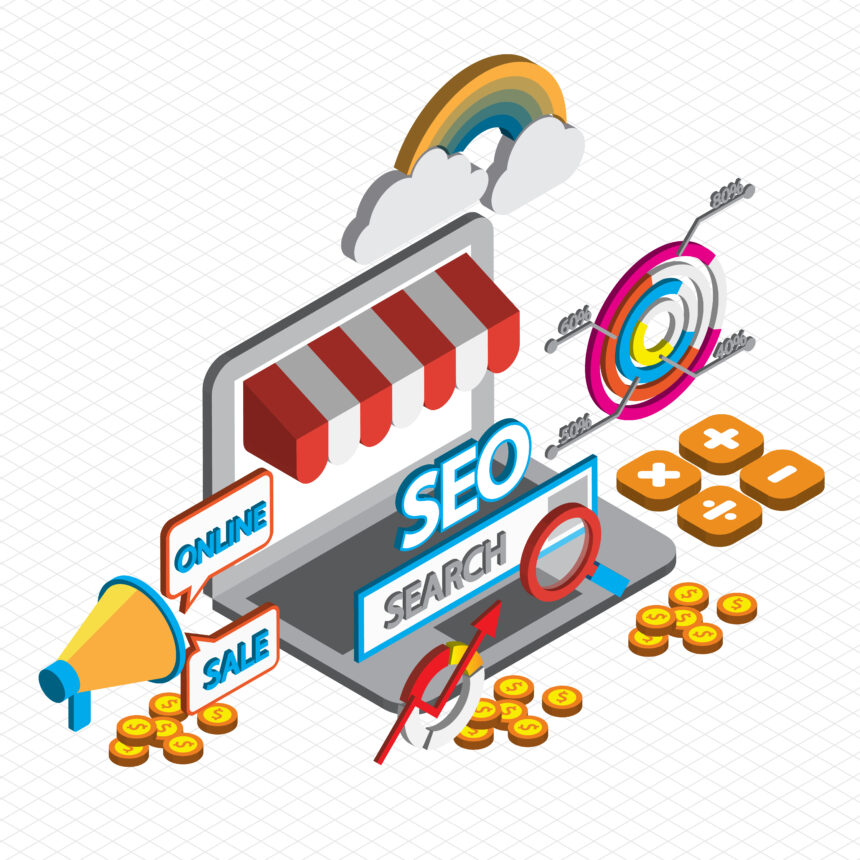In the ever-evolving world of digital marketing, businesses are presented with a multitude of strategies to enhance their online presence and drive sales. Among these, Pay-Per-Click (PPC) advertising, Search Engine Optimization (SEO), and specialized ecommerce SEO services stand out as pivotal components. Understanding the nuances of each can empower businesses to make informed decisions that align with their objectives.
The Essence of Digital Marketing Agencies
Digital marketing agencies serve as the architects of online strategies that bridge the gap between businesses and their target audiences. These agencies are adept at crafting tailored campaigns that encompass various facets of digital marketing, ensuring that businesses not only reach but also engage their potential customers effectively.
A key strength of digital marketing agencies lies in their ability to adapt to the dynamic nature of online platforms. With algorithms and user behaviors constantly shifting, these agencies stay abreast of the latest trends and technologies. This proactive approach enables them to implement strategies that are both current and forward-thinking, providing businesses with a competitive edge in the digital realm.
Moreover, digital marketing agencies often bring a wealth of experience across diverse industries. This breadth of knowledge allows them to apply best practices and innovative solutions that have been successful in other sectors, thereby enhancing the efficacy of campaigns. Their expertise in analytics and performance metrics ensures that strategies are continually optimized for maximum impact.
Understanding Pay-Per-Click (PPC) Advertising
PPC advertising is a model where businesses pay a fee each time their ad is clicked. It’s a way of buying visits to your site, rather than attempting to earn those visits organically. This method offers immediate visibility and can be highly effective in driving targeted traffic.
One of the primary advantages of PPC is its ability to deliver quick results. Unlike SEO, which can take time to show significant outcomes, PPC campaigns can generate traffic as soon as they go live. This immediacy is particularly beneficial for businesses looking to promote time-sensitive offers or events.
However, the effectiveness of PPC campaigns hinges on several factors, including keyword selection, ad copy, and landing page optimization. Without careful planning and execution, businesses may find themselves spending more on ads than the revenue generated from the traffic they attract. Therefore, it’s crucial to continuously monitor and adjust PPC campaigns to ensure a positive return on investment.
The Significance of Search Engine Optimization (SEO)
SEO is the practice of optimizing a website to rank higher in search engine results pages (SERPs), thereby increasing organic (non-paid) traffic. It’s a long-term strategy that focuses on enhancing various elements of a website to improve its visibility and user experience.
A fundamental aspect of SEO is keyword research. By identifying and targeting the terms and phrases that potential customers are searching for, businesses can tailor their content to meet these needs. This alignment increases the likelihood of attracting relevant traffic that is more likely to convert into leads or sales.
On-page SEO involves optimizing individual pages of a website, including elements like title tags, meta descriptions, and content. Off-page SEO, on the other hand, refers to actions taken outside of the website, such as building backlinks from reputable sites, to enhance the site’s authority and ranking.
Technical SEO addresses the backend aspects of a website, ensuring that it’s structured in a way that search engines can easily crawl and index. This includes optimizing site speed, mobile responsiveness, and URL structures. A technically sound website not only ranks better but also provides a better user experience, which can lead to higher engagement and conversions.
The Role of Ecommerce SEO Services
Ecommerce SEO services are specialized strategies aimed at optimizing online stores to increase their visibility in search engine results, drive organic traffic, and ultimately boost sales. Given the competitive nature of online retail, these services are crucial for businesses looking to stand out in the crowded digital marketplace.
A core component of ecommerce SEO is product page optimization. This involves crafting unique, keyword-rich product descriptions, optimizing images with alt text, and ensuring that product pages load quickly. These elements contribute to better search engine rankings and provide a seamless shopping experience for customers.
Category page optimization is equally important. Well-structured category pages with clear navigation and relevant content help both search engines and users understand the site’s offerings. This clarity can lead to improved rankings and a more intuitive user experience.
Additionally, ecommerce SEO services often include strategies to enhance local search visibility. By optimizing for local SEO, businesses can attract customers in their geographic area, which is particularly beneficial for brick-and-mortar stores with an online presence.
Integrating PPC and SEO Strategies
While PPC and SEO are distinct strategies, integrating them can yield synergistic benefits. Combining the immediate visibility of PPC with the long-term advantages of SEO allows businesses to maximize their online presence.
For instance, PPC campaigns can provide valuable data on which keywords convert best, information that can be used to inform SEO strategies. Conversely, the insights gained from SEO performance can help refine PPC campaigns, ensuring that both strategies complement each other effectively.
Moreover, having a presence in both paid and organic search results can increase a business’s visibility and credibility. Users often perceive websites that appear in both areas as more authoritative, which can lead to higher click-through rates and conversions.
Choosing the Right Digital Marketing Agency
Selecting a digital marketing agency that aligns with your business goals is paramount. It’s essential to consider factors such as the agency’s experience in your industry, their approach to strategy development, and their track record of delivering measurable results.
A reputable agency will take the time to understand your business, target audience, and objectives. They should offer customized solutions that address your specific needs, rather than a one-size-fits-all approach.
Transparency is another crucial factor. The agency should provide clear communication, regular updates, and detailed reports that demonstrate the effectiveness of their strategies. This openness ensures that you can track progress and make informed decisions about future marketing initiatives.
The Future of Digital Marketing
As technology continues to advance, the landscape of digital marketing is set to evolve. Emerging trends such as artificial intelligence, voice search optimization, and personalized marketing are shaping the future of online advertising and SEO.
Businesses that stay ahead of these trends and adapt their strategies accordingly will be better positioned to succeed in the competitive digital marketplace. Embracing innovation and continuously refining marketing approaches will be key to sustained growth and success.
In conclusion, PPC, SEO, and ecommerce SEO services are integral components of a comprehensive digital marketing strategy. By understanding their roles and how they interconnect, businesses can develop effective campaigns that enhance their online presence, drive traffic, and increase sales. Partnering with a skilled digital marketing agency can further amplify these efforts, providing the expertise and resources needed to navigate the complexities of the digital landscape.
Measuring Success in Digital Marketing Campaigns
One of the most critical aspects of digital marketing is the ability to measure and analyze the effectiveness of your campaigns. Without proper measurement, even the most well-planned strategies may fail to deliver the desired results. Digital marketing agencies employ advanced analytics tools to track performance metrics across PPC, SEO, and ecommerce SEO services, providing insights that guide decision-making and optimize campaigns for maximum impact.
Tracking metrics such as conversion rates, click-through rates, bounce rates, and average session duration helps businesses understand how users interact with their website. These insights reveal which aspects of a campaign are performing well and which areas require adjustments. For example, if a particular product page optimized through ecommerce SEO services is attracting traffic but not converting, adjustments in product descriptions, pricing, or call-to-action placement might be necessary.
Moreover, A/B testing is an essential part of measuring success. By experimenting with different headlines, ad copy, landing page designs, or keyword strategies, businesses can determine which approaches resonate best with their target audience. This iterative process ensures that campaigns continually improve and deliver a higher return on investment over time.
Leveraging Content Marketing Alongside SEO

Content marketing and SEO go hand in hand. High-quality content not only provides value to your audience but also enhances your website’s visibility on search engines. By incorporating relevant keywords naturally, such as those used in ecommerce SEO services, businesses can attract organic traffic that is more likely to convert into customers.
Blog posts, product guides, tutorials, and informative articles help establish authority in your niche. This authority signals to search engines that your website is trustworthy, which can improve rankings over time. Additionally, content marketing nurtures relationships with potential customers by providing them with valuable information that aligns with their interests and needs.
Another significant advantage of content-driven SEO is its long-term sustainability. Unlike PPC, which stops generating traffic once the budget is exhausted, high-quality content continues to attract visitors over time. By consistently producing optimized content, businesses create an ongoing source of traffic and sales, making ecommerce SEO services an essential investment for sustained growth.
The Impact of Mobile Optimization on SEO
In today’s mobile-first world, optimizing your website for mobile devices is no longer optional—it’s a necessity. Mobile optimization directly influences search engine rankings and the overall user experience. Websites that load quickly, display properly on different screen sizes, and offer intuitive navigation retain users longer, reducing bounce rates and boosting conversion rates.
Ecommerce SEO services increasingly focus on mobile performance, as mobile users represent a substantial portion of online shoppers. A seamless mobile experience ensures that potential customers can easily browse, select, and purchase products without frustration. Search engines, particularly Google, prioritize mobile-friendly sites in their rankings, making this optimization crucial for visibility and revenue generation.
Building Brand Authority and Trust Online
Beyond technical SEO and paid campaigns, establishing a strong brand presence online is essential. Customers are more likely to purchase from brands they recognize and trust. Through strategic digital marketing, including PPC, SEO, and ecommerce SEO services, businesses can strengthen their brand identity and credibility.
Social proof, such as reviews, testimonials, and case studies, further reinforces trust. When users see that others have had positive experiences, they are more inclined to engage with your brand and make a purchase. This trust-building process is gradual but invaluable, ultimately leading to higher customer loyalty and repeat business.
Adapting to the Future: AI and Automation in Digital Marketing
Artificial intelligence and automation are transforming how digital marketing campaigns are executed and optimized. AI-powered tools can analyze large datasets, predict consumer behavior, and even automate content creation, allowing businesses to focus on strategy and creativity.
Ecommerce SEO services are also leveraging AI to refine keyword targeting, optimize product descriptions, and monitor competitors more effectively. By incorporating these advanced technologies, businesses can stay ahead of market trends, maintain a competitive edge, and ensure that their digital marketing efforts deliver measurable results.
Maximizing Growth with Comprehensive Digital Strategies
In the modern digital marketplace, businesses cannot rely on a single marketing channel to achieve success. PPC advertising, SEO, and ecommerce SEO services each play unique and complementary roles in driving traffic, generating leads, and increasing sales.
By partnering with experienced digital marketing agencies, businesses gain access to expertise, advanced tools, and data-driven strategies that maximize the return on their marketing investments. A well-executed digital marketing plan not only improves visibility and engagement but also fosters trust, builds brand authority, and ensures long-term growth.
For companies aiming to thrive in the competitive online space, investing in ecommerce SEO services is no longer optional. It is a strategic necessity that delivers sustainable results, enhances user experience, and ensures that every marketing dollar spent contributes meaningfully to business growth. As technology evolves, staying proactive, adaptable, and data-driven will be the defining factor between brands that succeed and those that fall behind in the digital era.













